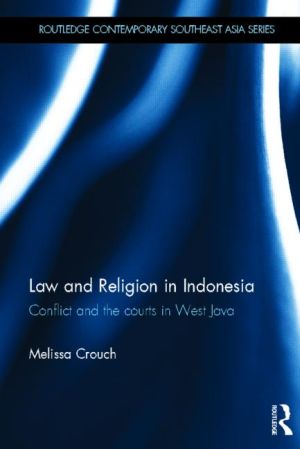We are now closed for the Christmas and New Year period, returning on Monday 5th January 2026. Orders placed during this time will be processed upon our return on 5th January.

Understanding and managing inter-religious relations, particularly between Muslims and Christians, is a matter of global concern. This book investigates disputes between religious communities in the world's largest majority-Muslim, democratic country, Indonesia. It considers how the interaction between state and religion influences relations between religious communities. The book presents case studies based on original socio-legal field research of court disputes in West Java, a majority-Muslim province with a history of radical Islam. These include criminal court cases and cases of judicial review relating to religious education, permits for religious buildings and the crime of blasphemy.
The book argues that radical Islamists have had a significant influence on law reform and the courts because of the politicization of religion under democracy. Disputes have been localized through the decentralization of power and exacerbated by the central government's ambivalent attitude towards radical Islamists who disregard the rule of law and the persistence of fears of Christianization. The findings regarding the extent to which religious minorities can have faith in the legal system have broader significance for the Muslim world, and the book is of interest to scholars of Southeast Asian politics and society and those interested in the comparative Islam, religious freedom in the Muslim world and the legal aspects of inter-religious relations.